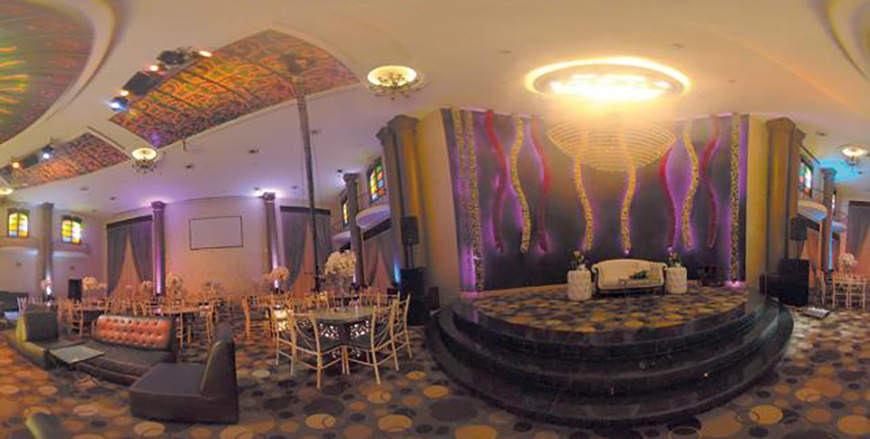You are here
Wedding venues suffer as clients shift to non-traditional settings
By Batool Ghaith - May 20,2022 - Last updated at May 20,2022

Photo courtesy of unsplash.com
AMMAN — Wedding venues in Amman are still struggling and their situation is “getting worse” amid the shift to private farms alongside many young people’s reluctance to get married due to financial constraints, according to a sector representative.
According to Mamun Al Manaseer, head of the Wedding Venues and Planning Businesses Association, despite the easing of COVID-19 restrictions and the reopening of sectors “there are barely any reservations for this summer season”.
“Private farms are competing with wedding venues and taking our business, which is unfortunate as they are not licensed to host such events, while we pay taxes, rent, salaries and more to do so,” Manaseer told The Jordan Times.
He said that the government is still “turning a blind eye to the private farms”.
“Weddings and occasions at private farms have become a trend among Jordanians. Most farms are already fully booked for the season,” Manaseer continued, noting that he doesn’t expect the wedding venues reservations to increase this season.
The association’s president also highlighted that the recent period witnessed a “high reluctance among young people to marry due to the high expenses associated with the contract”.
“Young Jordanians are not getting married as before. This is due to financial difficulties and lack of good income, as well as the high cost of marriage and living,” he added.
According to economist Hosam Ayesh, abstaining from marriage is “a socio-economic and cultural issue”, as young people’s view of marriage has changed due to factors including social media and the exchange of culture during studying or working abroad.
“The dynamics of marriage and related rituals have changed, especially in terms of costs and requirements,” Ayesh said.
“The costs related to marriage can put burdens and debts on the spouses for years to come, which sometimes leads to divorce and affects social stability,” Ayesh noted.
Economic reasons are an important motive behind postponing or not thinking about marriage, including the search for a job, which has become very difficult, alongside an unsustainable income, Ayesh highlighted.
According to Ayesh, post-marriage costs, such as establishing a family and providing education for children, is continually increasing, which provides another reason for reluctance to marry.
“People have a fear of uncalculated costs after the pandemic, as they now live in a state of constant anxiety about the future, politically, economically, socially, culturally and psychologically,” he said.
Ayesh also indicated that the rising costs of purchasing a house or an apartment also contributes to marriage reluctance.
“These issues affect many other sectors that depend on marriage, such as wedding venue business, whose losses have reached tens of millions of dinars. Businesses are not used to this, and people resort to simpler weddings to reduce costs,” he said.
Ayesh noted that entities and sectors dependent on marriage must search for “new ways to provide their services in order to curb losses or completely exit the market.”
Sociologist Hussein Khozahe said that the “main reason” why Jordanian youth do not want to marry or think about marriage is the high unemployment rates among young men at marriageable age, which now reach 52 per cent.
“When young Jordanians decide to marry, they look for an educated and employed woman to help and support them in life [sharing expenses], and since the unemployment rate for girls with a bachelor’s degree has reached more than 79 per cent, this reduces the chances of marriage even more,” Khozahe said.
He emphasised that low salaries, high living cost and accommodation have pushed 50 per cent of young Jordanians to consider emigration, not marriage.
Additionally, parents are unable to marry off their children, Khozahe noted, indicating that “the pandemic did not majorly affect marriage, as this phenomenon started way before”.
Khozahe said that according to the Department of Statistics, in 2016, the number of marriage contracts was approximately 81,000, decreasing to approximately 77,000 in 2017, and further declining to 62,000 in 2019.
Related Articles
AMMAN — The occupancy rate at wedding venues currently stands at roughly 45 per cent, according to the Head of the Wedding Venues and
AMMAN — There is a significant lack of demand for wedding venues, as 90 percent of citizens who plan to get married choose private farms, ac
AMMAN — Despite peak season, wedding vendors were confronted with a 50 per cent decline in demand for venues and halls, according to Ma’mun

















